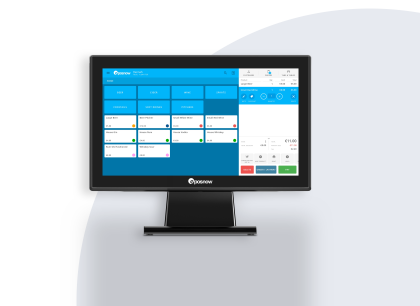How to Measure Success in Business
It may be that your business has allowed you to achieve personal ambitions or turn over a certain amount of money. Your business might manage a dozen people or have become international. No matter where you stand, there is no singular way to judge success and failure.
Success is often a matter of personal perspective and yet business is often about cold, hard numbers. You may feel proud of your business (quite rightly), but that success is only solidified and measured when you find the numbers to back that up.
Method one: customer satisfaction
One of the simpler ways for business owners to determine whether or not they’ve achieved their business goals is by learning how happy customers are with their products and services. If people question the business and they are able to show them a long list of 5-star reviews, it will be hard to dispute that they’re good at what you do.
Google Business, which provides access to Google Reviews, is a fantastic way to kick-start this process if you haven’t already. Having an active social media presence can provide a strong dialogue between the business and customers. However, there are numerous other ways of measuring satisfaction beyond five-star reviews or written congratulations.
For example, a high customer retention rate is an indicator of satisfaction. This can also be referred to as customer churn rate, which refers to the rate customers stop doing business with you. If a large percentage of those that first visit your business return for a second time or more, that suggests that they were at least satisfied with their experience the first time.
Customer retention isn’t the easiest thing to measure but depending on your trade, this can be measured through your EPOS (electronic point of sale). Both retail and hospitality industries are switching from paper to email receipts with greater frequency, which allows servers to input name and email to a customer account.
A POS system has customer data collection capabilities, but this requires taking a small amount of data to do so. With an email and name, an EPOS can measure return visits and customer retention rates can be ascertained.
A good customer experience is fundamental to business success. Measured by review scores and retention, a positive experience shows that your community values your business. With your community behind you, your business should continue to trade strongly and it is reasonable to consider yourself a success.
No matter your industry, retail or hospitality, Epos Now tills are tried and tested time-savers.
Benefit from:
- Integrated card payment systems
- Quick and easy product management
- Flexible reports on everything from stock levels to staffing
- Hundreds of apps to adapt your system to your business needs
- Expert support to ensure you get the most out of your business

Method two: track KPIs
Performance tracking across all aspects of business is something entrepreneurs have been interested in for centuries. Key performance indicators (KPIs) have developed as a result, which businesses use to measure certain aspects of business that generally indicate the health of a business.
Key performance indicators may include review figures, but leans more towards sales and profitability. Example KPIs could be new customer acquisition and customer acquisition cost (CAC, sales and marketing expenses divided by new customers), average customer spend, turnover/revenue information, profit margins, and wastage.
The measuring of KPIs has undergone a revolution in the last few decades due to the implementation of digital business KPIs defining and measuring success across all areas. The widespread use of EPOS has meant the tools for measuring business success are readily available to all businesses.
Using an EPOS to measure KPIs, and to understand much finer details about your business, is made easy through EPOS reporting. EPOS systems gather and store enormous amounts of data as you trade on sales and inventory, customers and employees, over and underperforming products and anything else they can.
This real-time data is extremely useful for day-to-day operations, but over time also shows the cold, hard performance measurements you can use to judge success. If your business continues to acquire new customers (and retains existing ones), has good profit margins, and maintains low wastage and operating costs, then you’re meeting all the success metrics.
EPOS’s readymade financial data is invaluable for completing end of year tax returns and evaluations that every business needs to do. The inbuilt financial metrics correspond to those needed by accountants and can be downloaded into programs like Sage and Xero. Using cash flow statements and tax returns can demonstrate the recurring revenue and growth you can expect from your business, further key indicators of success.

Why measuring performance is important to the success of businesses
Thanks to developments in software and analytics, most businesses have an excellent understanding of where they are weak or strong. Isolating areas of weakness can tell managers which parts of operations need to be changed or scrutinised further to understand precisely what is holding the business back.
Better self-knowledge helps businesses make better decisions and, through EPOS reports and software analysis, they can meet the KPIs that experts believe are the important benchmarks of business growth.
Take a business with low profit margins and wastage, low retention rates but high customer acquisition. This business can isolate customer service as an area for improvement (given that low-profit margins suggest the customer is being provided the best value possible).
In a situation like this, a business knows to look at employee performance and training as areas for improvement. Employee churn (rates of resignation) and employee satisfaction could suggest that customers are not being presented with a happy environment. This can be a big factor in whether or not they return regardless of product quality.
Because of the high value of information like this, and the way it can help business owners to make better decisions, EPOS data has proven itself to be hugely valuable to modern management. Whether this is viewed in reports on terminals themselves, is downloaded into third party software or onto spreadsheets, the return on investment for acquiring this information is without question.
Software for measuring business success
When it comes to building business reports, Epos Now are second to none. With flexible, detailed and downloadable data, Epos Now solutions are the perfect answer for businesses looking to learn more about their operations.
With software and hardware options for both retail and hospitality industries, creating a bespoke package to suit your trade has never been easier.
- Streamline service with speedy, modifiable transaction software
- Integrate your system with Epos Now Payments for blended rates and simple reports on card payments
- Choose from hundreds of brilliant, business apps to create the perfect system in every area from marketing, accounting, inventory management and more
- Benefit from cloud technology and view Epos Now’s detailed reports from anywhere you like so you’ll always be in the know on day-to-day trading
Submit your details below to find out more about Epos Now’s business solutions or get in touch with our expert sales team to have all your questions answered.
Epos Now solutions are the trusted foundation of over 40,000 businesses all over the world!



